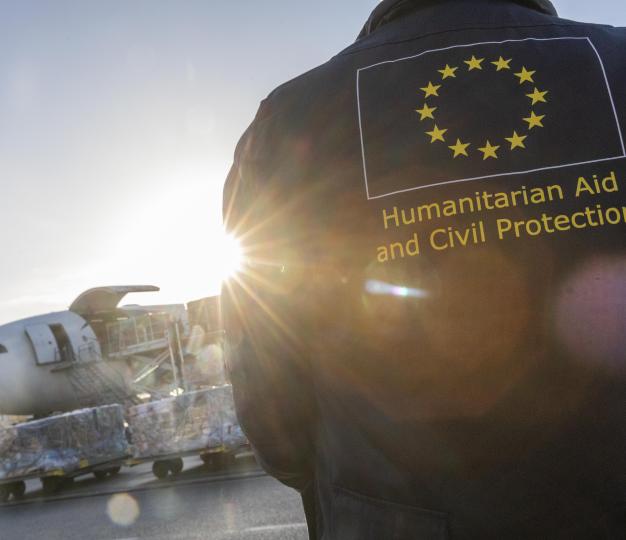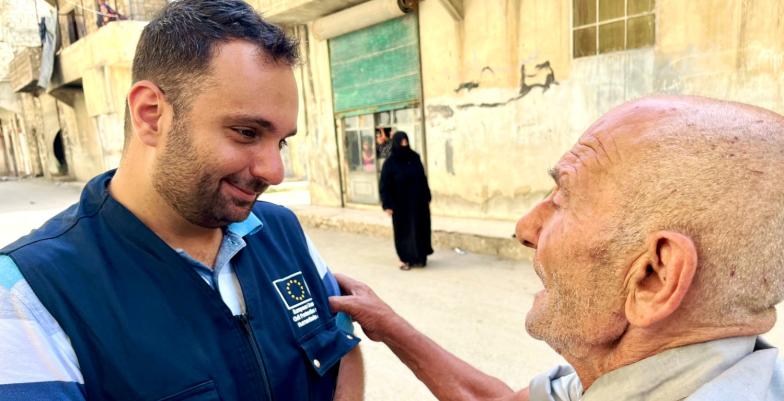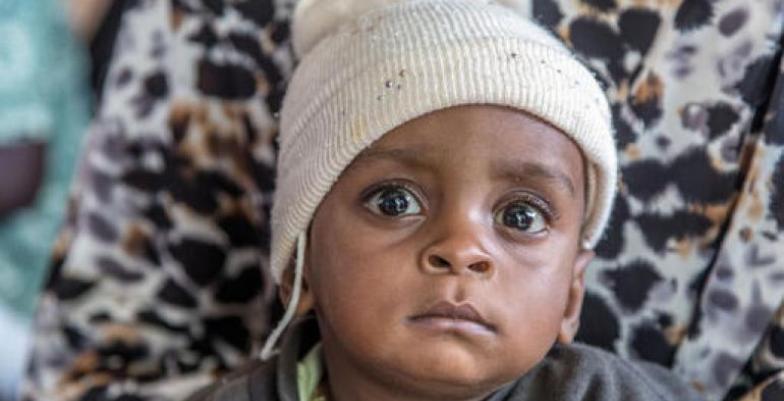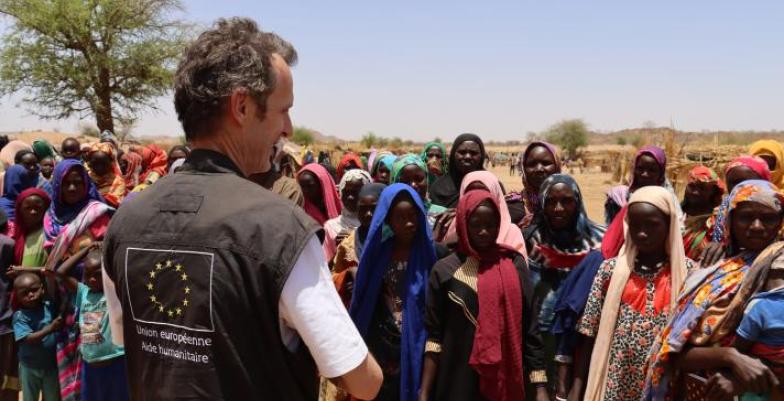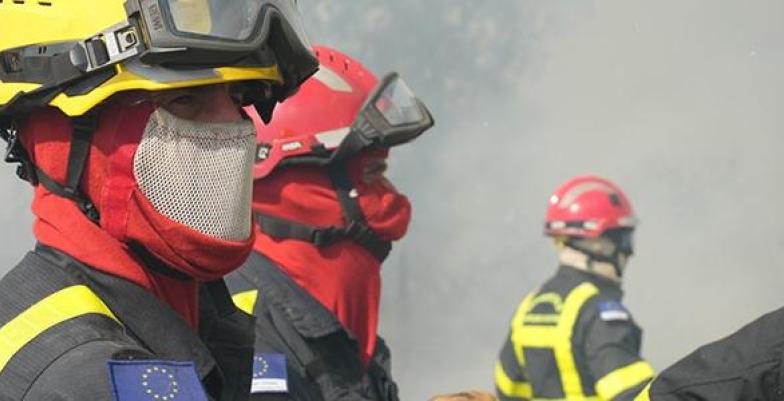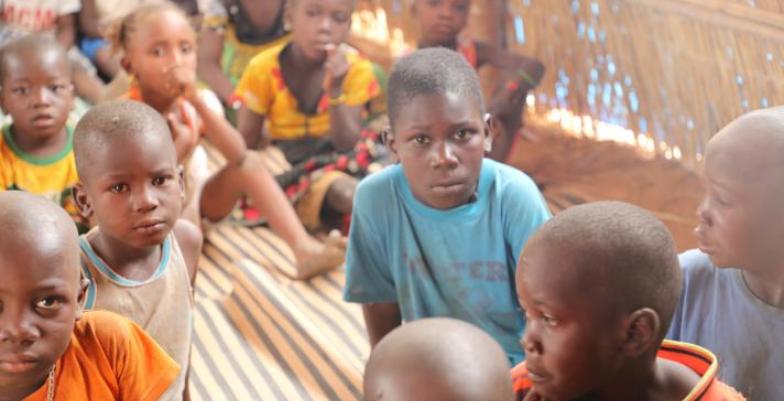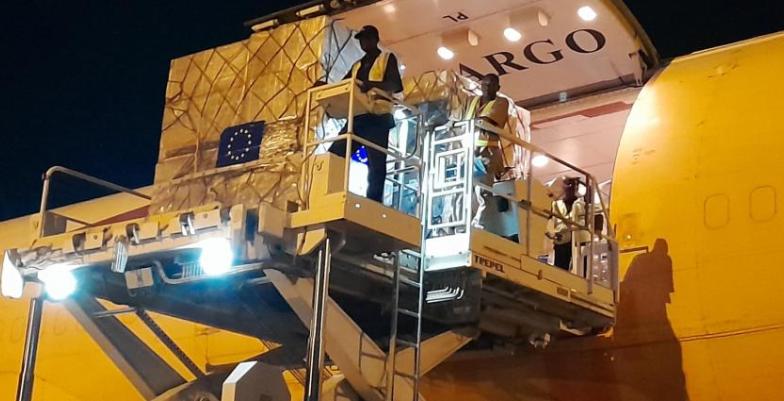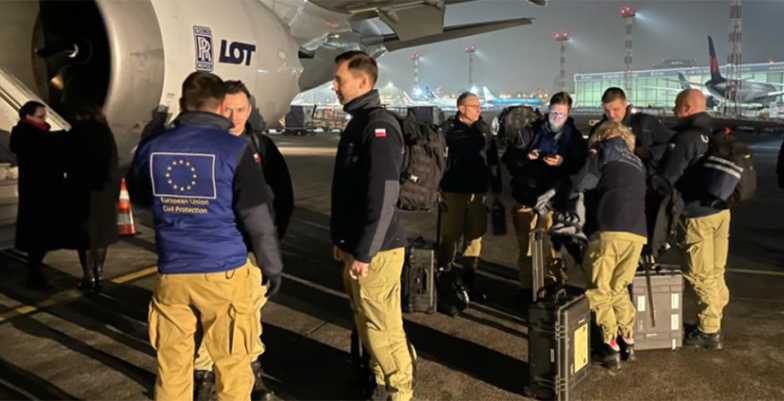Humanitarian & Emergency Response
The European Union together with its Member States is the world’s leading humanitarian donor, providing around 38.7% of the global humanitarian assistance in 2025, according to data from the United Nations Office for the Coordination of Humanitarian Affairs (OCHA). Humanitarian aid is a key pillar of the EU’s external action and an important part of its ability to project its values globally. EU humanitarian aid is based on international humanitarian principles and as set out in the European Consensus on Humanitarian Aid.
EU Humanitarian Aid and Emergency Response
In an increasingly challenging world, marked by the exacerbation of conflicts, climate change, environmental degradation and health threats, the EU promotes integrated responses to humanitarian crises, which are often protracted and need long-term solutions.
EU humanitarian aid intervention includes the provision of:
While needs are becoming more complex, the funding gap is widening and the delivery of aid is becoming more difficult and dangerous.
The EU's long-term budget for 2021-2027 includes a dedicated budget line for humanitarian aid, with a total of €11.57 billion allocated for the seven-year period or around €1.65 billion per year. At the European Humanitarian Forum in May 2025, the European Commission announced an initial humanitarian pledge of over €2.3 billion for 2025 to address urgent global crises.
The EU provides assistance to crisis zones and countries facing post-conflict instability. The EU is also raising awareness of so-called 'forgotten crises' i.e. protracted crises which have escaped the attention of the media and the international community. The EU devotes 15% of its initial humanitarian budget to these crises.
The EU works in all major crisis-hit areas, including Palestine, Syria, Sudan, South Sudan, Ukraine , Sahel, Yemen, Myanmar/Burma, Democratic Republic of Congo, Afghanistan and Haiti. Humaniatrian efforts continue to save lives, reduce suffering and protect the security and dignity of those affected. The provision of civil protection assistance is carried out through the EU's Civil Protection Mechanism.
Humanitarian aid is channelled through over 200 partner organisations and agencies on the ground, including non-governmental organisations, international organisations, Red Cross societies and UN agencies. Particular attention is given to strengthening the capacity and resilience of local partners.
EEAS support to EU humanitarian aid efforts
The EEAS plays an important role in supporting the EU humanitarian aid and emergency efforts through its network of EU Delegations, in addressing the root causes of humanitarian crisis, and in increasing the preparedness and resilience of affected populations. The EU works continuously on the promotion of key policies, notably in the areas of peace and security, human rights, public diplomacy, promoting multilateralism and UN-led coordination and addressing global challenges.
EU High Representative/Vice President Kaja Kallas, jointly with relevant Commissioners, actively promotes the mobilisation of the international community in providing humanitarian support during emergencies and crises as well as supporting EU and multilateral initiatives. This is achieved namely by hosting international events, such as the annual Brussels Conference on Syria.
Addressing the humanitarian challenges faced by people affected by crisis and conflicts is a key political priority for the EU. The Ministers of Foreign Affairs of EU Member States meet regularly in the format of the Foreign Affairs Council, chaired by the HRVP, to promote robust, joint and timely political and humanitarian responses at EU level to crisis and conflicts around the world.
The EEAS works with other services to increase the engagement with Member States, their diplomatic network and finance institutions, including national development banks and implementing agencies, as well as the European Investment Bank and the European Bank for Reconstruction and Development.
The EEAS is working on strengthening the link between humanitarian, development and peace interventions. This aims at reducing needs, increasing resilience of individuals and communities to be better prepared to cope with, adapt and recover from the impact of a disaster, conflict or violence, and tackling the root causes of crises and impacts of fragility. This can involve joint analysis and operational response frameworks, as well as adopting a conflict-sensitive, Do-No-Harm approach.

